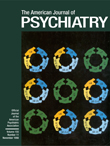Deconstruction of Psychotherapy
This is a well-crafted book by one of the leading figures on the practice of psychotherapy. Dr. Karasu uses the “metaphor” of deconstruction theory to approach the question of a modern understanding of psychotherapy. Although the effort of applying deconstruction theory to a nebulous enterprise such as psychotherapy is interesting, it seems a bit contrived as a means to gain a grasp of the issues in the field. However, the reader should be willing to forgive this indulgence because Dr. Karasu does an excellent job of analyzing psychotherapy and puts forward many salient and creative notions.
There is an excellent chapter providing a concise and incisive overview of the major theoretical paradigms in psychotherapy, i.e., psychodynamic, behavioral, and experiential. These three paradigms are viewed from the perspectives of the nature of man and his difficulties, how changes occur (the therapeutic process), the nature of the therapeutic relationship, and techniques, methods, and variations on the basic paradigm. If there is a weakness in the first portion of the book, it is the relative undertreatment of cognitive behavior therapy under the behavioral paradigm. Cognitive behavior therapy is enjoying increasing success as a clear manual-guided treatment and is shown to be effective in a variety of specific psychiatric illnesses.
Dr. Karasu begins to reach for a higher gear in his chapter on the dilemma of specificity versus nonspecificity of cure. He takes on several dualities of psychotherapy, including sectarianism versus eclecticism, individuality versus universality, and technique versus relationship. I found his account of a definition of specificity to be particularly wise; he clearly understands the complexity of this seductively simple idea. He develops the idea of specificity as meaning a determining quality and as a mechanism for mediation of cure as opposed to its meaning common or unique. Also, he notes that the terms “specific” and “nonspecific” frequently refer to the quality of being scientifically accessible or not, respectively. One of the interesting features of his treatment of the sectarianism versus eclecticism duality is a strong argument against the value of eclecticism. Dr. Karasu very carefully notes that a therapist’s belief in his or her preferred mode of therapy is an element of its success. Eclecticism, by contrast, carries no theoretical loyalty or passionate belief; instead, it can foster confused therapists with marginal advances in treatment success.
In his discussion of the dualities of individuality versus universality, Dr. Karasu surmises that there are probably no treatments that are universally good for everyone. Rather, he argues persuasively that specific treatments have specialized techniques that are valuable for treatment of different patient groups. Therapeutic goals and therapeutic effects can manifest themselves in a variety of different ways.
The chapter that deals with the problems of psychotherapy research is also sagacious. Dr. Karasu identifies problematic areas of research design, sample selection, methodologies, assessment of change, cost effectiveness, costs versus benefits, statistical issues, research strategies, and unresolved outcome measurement issues. This is an excellent chapter on some of the pitfalls in logic that have haunted the interpretation of psychotherapy research.
In the last two chapters, Dr. Karasu attempts to achieve a synthesis of commonalities or universal aspects of psychotherapies, but not in an effort to establish an eclectic approach. He identifies the dimensions of affective experiencing, cognitive mastery, and behavioral regulation as important features of the healing experience regardless of the school of psychotherapy. He goes on to show that all of these elements seem to be present in one way or another in all of the theoretical schools of psychotherapy but are emphasized differentially. Dr. Karasu ends on a transcendent theme in his construction of a notion of the therapeutic action of psychotherapy. Although this effort also seems to be something of a metaphor that is perhaps appropriate for the high-sounding notion of deconstructionism, this formulation certainly provides an affective experience of hopefulness as well as a cognitive reorientation of thinking beyond therapy theory and behavioral regulation of learning to live without blind devotion to theory.
There are some important aspects of modern psychotherapy practice that are not addressed here but are necessary to truly understand this complex endeavor. There are economic issues, the nature of patients who seek psychotherapy, and the nature of those who wish to provide it. Nevertheless, this is an excellent book, very much rewarding the effort of its reading. I highly recommend this book for both practitioners and academics who seek an understanding of the practice and theory of psychotherapy.



